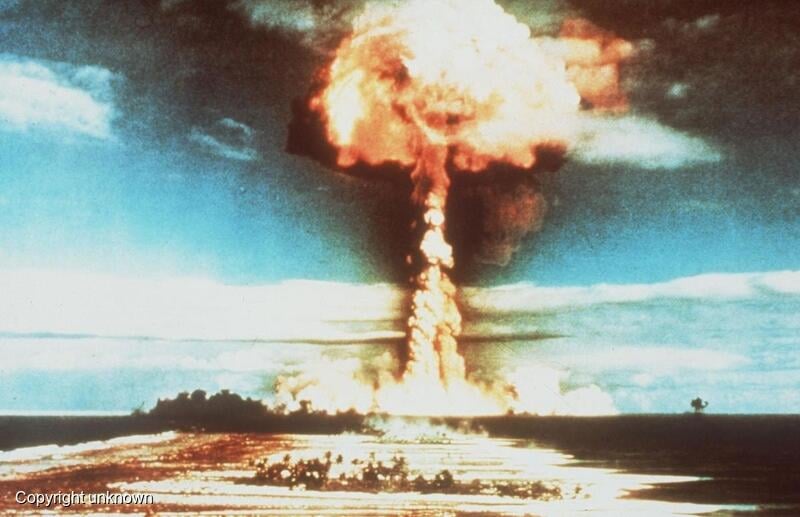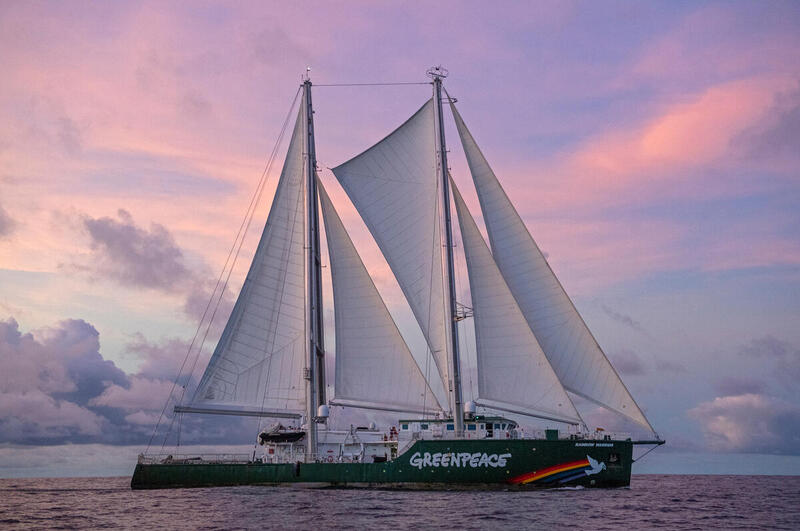Sometimes you just have to take a stand. Greenpeace’s win yesterday in the Supreme Court in a precedent setting case about an arcane charity law was one of those times.
The story goes back years, when Greenpeace first started applying for charitable status. The Charities Commission (as it then was) said that although the bulk of Greenpeace’s purposes could be considered charitable, the purpose of promoting peace and disarmament was too political and was enough to block its application.
Believe it or not, New Zealand’s charities law dates from a 14th century poem and a 17th century English statute. The so-called ‘political’ exception in contrast is comparatively recent: it stems from an English 1917 case called Bowman, about whether a charity promoting secular society could be charitable. The House of Lords held that it could not because it was ‘political’, stating that: “the Court has no means of judging whether a proposed change in the law will or will not be for the public benefit, and therefore cannot say that a gift to secure the change is a charitable gift”.
A 1948 case about vivisection came to the same conclusion: a purpose to change the law was political, and could not be charitable. In a 1981 New Zealand Court of Appeal case called Molloy, an anti abortion group, who was opposing rather than proposing a change in the abortion legislation, was considered to be political and therefore could not be charitable. Then in what in my view was the low-point in this legal debate, a 1981 UK court ruled in a case called McGovern, that Amnesty International could not be charitable, because they promoted changes in government policies. Even advocating change in another country’s laws was considered too ‘political’.
“Hard cases make bad law”, said V. S. Lean in 1903 and at the time of Bowman, there was very little community interface with the legislative process. Half the population, being women, couldn’t even vote.
In the 21st Century western democracies’ modern participatory democracy encourages freedom of speech and participation in the democratic processes. Non-governmental organisations (NGOs) routinely make presentations to government Select Committees and are encouraged too. They also write editorials and speak to the media and their MPs about important but controversial issues. NGOs are seen as a necessary check and balance in our democratic process.
By 2010, the tide had turned, at least in Australia. The Australian High Court, in a case about the organisation Aid/Watch, who monitored how aid was spent, said that there is intrinsic value in democratic participation and “that agitating for legislative and political change could be a purpose beneficial to the community”. The Court said that creating a public debate through lawful means about the efficiency of foreign aid on the relief of poverty, is itself a purpose beneficial to the community.
So Greenpeace decided to push this issue. It did not accept that charities law in the 21st century meant banning controversial or ‘political’ organizations from charitable status. Our democracy is strong enough to allow controversy. Greenpeace took its case to the High Court which ruled, surprisingly perhaps, that promoting peace was not ‘political’ but that promoting disarmament was. So Greenpeace appealed to the Court of Appeal, which held that yes, nuclear disarmament is not (too) political either. So Greenpeace did not, after all, fall into the ‘political’ exception. Having won that narrow point, Greenpeace could have left the case there.
But the Court of Appeal decided not to follow Australia and Aid/Watch, and maintained that political purposes or activities should exclude an organisation from being a charity. So Greenpeace pressed on to the Supreme Court: it believed that an important principle of democracy was at stake.
And it was. The Supreme Court rose to the challenge. It is worth quoting Chief Justice Sian Elias in paragraph 71:
“[71] Just as promotion of the abolition of slavery has been regarded as charitable, today advocacy for such ends as human rights or protection of the environment and promotion of amenities that make communities pleasant may have come to be regarded as charitable purposes in themselves, depending on the nature of the advocacy, even if not ancillary to more tangible charity. That result was looked to as one that might well come about in relation to protection of the environment by Somers J in Molloy. In the present case the Board has accepted that Greenpeace’s object to “promote the protection and preservation of nature and the environment” is charitable. Protection of the environment may require broad-based support and effort, including through the participatory processes set up by legislation, to enable the public interest to be assessed. In the same way, the promotion of human rights (a purpose of the New Zealand Bill of Rights Act 1990, as its long title indicates) may depend on similar broad-based support so that advocacy, including through participation in political and legal processes, may well be charitable.”
From that high point of principle, the rest fell into place: “We agree with the view expressed by Kiefel J in Aid/Watch that charitable and political purposes are not mutually exclusive. As a result, we depart from the approach taken in the Court of Appeal” and “we are unable to agree with the Court of Appeal suggestion that views generally acceptable may be charitable, while those which are highly controversial are not.”
Does this mean that controversial or ‘political’ organisations will now automatically gain charitable status? Definitely not. As the Supreme Court held, “assessment of whether advocacy or promotion of a cause or law reform is a charitable purpose depends on consideration of the end that is advocated, the means promoted to achieve that end and the manner in which the cause is promoted in order to assess whether the purpose can be said to be of public benefit within the spirit and intendment of the 1601 Statute.” In short, the NGO must show that its work is for the public benefit. But being controversial or ‘political’ no longer means automatic exclusion.
It is a good day for civil society and democracy. As Greenpeace New Zealand’s executive director Bunny McDiarmid put it, the decision “makes New Zealand’s democracy a little stronger.” And in an election year, that has to be a good thing.
Duncan Currie is an International and Environmental lawyer who has worked all over the world for Greenpeace and many other organisations.
Related Links
Greenpeace Media Statement & Timeline
The Full Judgement (PDF)



